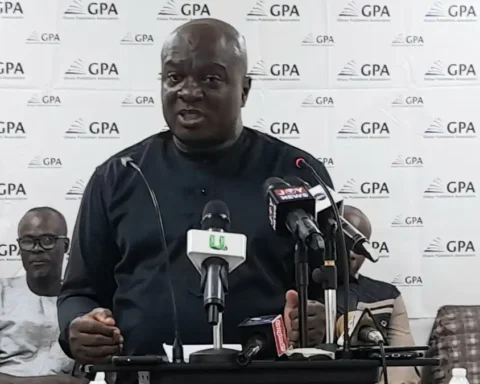May 16, 2023 – A recent study conducted by a team of language specialists at Fiaseman Senior High School in Tarkwa, western Ghana, has shed light on the concerning relationship between social media use and English language performance among students. The researchers, led by Associate Professor Ramos Asafo-Adjei, focused on the impact of social media platforms such as Facebook, WhatsApp, Telegram, YouTube, and Instagram on students' writing skills, particularly in English.
While the influence of social media on students' social behaviour has been extensively discussed, its effects on their English language writing have largely been overlooked. The researchers sought to address this gap by investigating the habits and behaviours of students in an English as a Second Language class. English serves as Ghana's official language and is the medium of instruction at all educational levels.
The findings revealed that students spend significant amounts of time on various social media platforms, with some even describing their usage as an “addiction.” Consequently, their prolonged exposure to social media has led to the adoption of shortened forms of English words in their writing, including their English examination papers.
Associate Professor Asafo-Adjei and the research team expressed concern over the extended periods students spend on non-academic social media platforms. This diversion of valuable study time to unproductive online activities may ultimately lead to poor performance in the English language. Such underperformance is especially alarming as success in the English language is a prerequisite for gaining admission to universities and training colleges through the West African Senior School Certificate Examination, which is widely recognized in Ghana.
During the study, the researchers engaged with a Form 2 class consisting of 47 students, aged 17 and 18 on average, who willingly participated in the research. The students were predominantly active on social media platforms such as WhatsApp and Facebook, visiting these sites regularly and for extended periods. One student even confessed to being addicted, stating that controlling their presence on social media was extremely difficult.
The consequences of this phenomenon are twofold. First, the researchers argue that students are likely to neglect their studies and fail to dedicate the necessary time and attention to academic pursuits. Second, the participants' English language performances are negatively affected, primarily due to the transfer of unacceptable written forms of English, known as short forms, from their informal social media interactions to their formal examination writing.
The study revealed that the usage of short forms, such as substituting “4” for “for,” “u” for “you,” and “d” for “the,” is a common practice among students. It was also discovered that students are aware of the detrimental effects of such deviant language practices on their English language performance. Many admitted to unknowingly incorporating these short forms into their notes and even examination answers.
Asafo-Adjei and the research team concluded that the inappropriate use of English on social media platforms undermines students' ability to express themselves effectively in formal academic writing. If this trend continues, students will face increasing difficulties in achieving success in the subject, as formal English language proficiency is vital for examinations and further studies.
To address this issue, the researchers recommend that educators explore innovative teaching practices that leverage social media to engage students actively. Integrating online dictionaries with pronunciation buttons and providing access to free educational resources on social media platforms can help students learn while utilizing their time online. Additionally, teachers should guide students in selecting appropriate social media sites, and high school academic counseling units should educate students on the importance, dangers, and appropriate usage of social media for academic purposes.
The research underscores the urgent need for all stakeholders in
education to recognize the significance of students' social media use. Without proactive measures, Ghana risks witnessing widespread failures in the English language component of the West African Senior School Certificate Examination. By embracing innovative approaches, educators can harness the potential of social media as a tool for academic growth and ensure students' success in their language studies.








